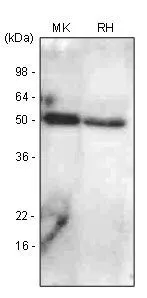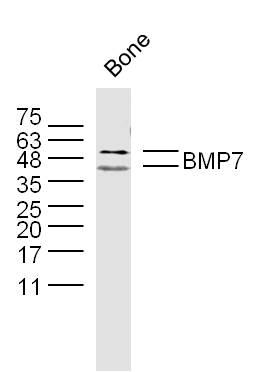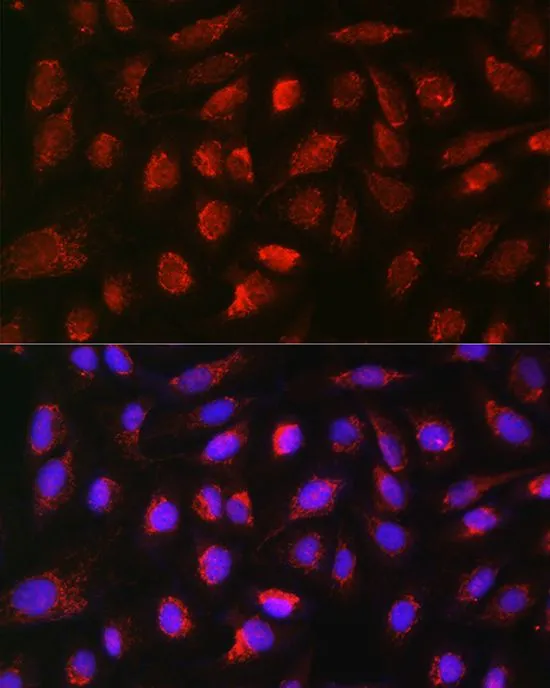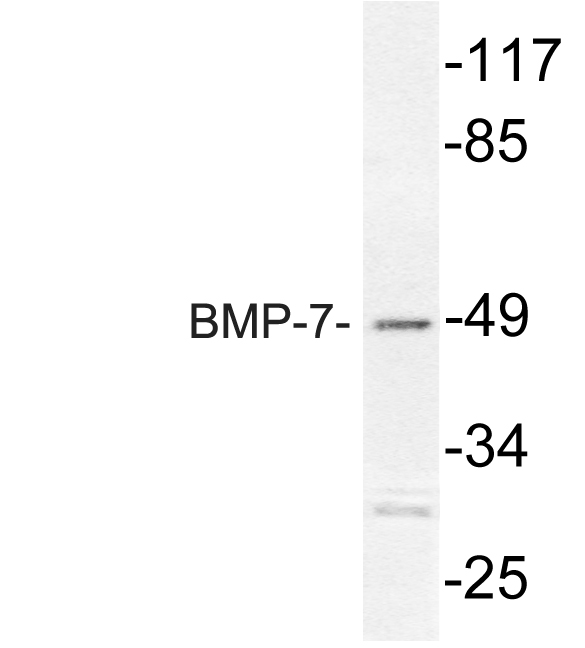
WB analysis of lysates from mouse kidney (Mk) and rat heart (RH) using BMP-7 antibody at a dilution of 1:1,000.
BMP7 antibody [4E7]
GTX53692
ApplicationsWestern Blot, ELISA
Product group Antibodies
ReactivityHuman, Mouse, Rat
TargetBMP7
Overview
- SupplierGeneTex
- Product NameBMP7 antibody [4E7]
- Delivery Days Customer9
- Application Supplier NoteThe antibody has been tested by ELISA and Western blot analysis to assure specificity and reactivity. Since application varies, however, each investigation should be titrated by the reagent to obtain optimal results. Recommended dilution range for Western blot analysis is 1:500 ~ 2,000. Recommended starting dilution is 1:1,000.
- ApplicationsWestern Blot, ELISA
- CertificationResearch Use Only
- ClonalityMonoclonal
- Concentration1 mg/ml
- ConjugateUnconjugated
- Gene ID655
- Target nameBMP7
- Target descriptionbone morphogenetic protein 7
- Target synonymsOP-1, bone morphogenetic protein 7, osteogenic protein 1
- HostMouse
- IsotypeIgG1
- Protein IDP18075
- Protein NameBone morphogenetic protein 7
- Scientific DescriptionThis gene encodes a secreted ligand of the TGF-beta (transforming growth factor-beta) superfamily of proteins. Ligands of this family bind various TGF-beta receptors leading to recruitment and activation of SMAD family transcription factors that regulate gene expression. The encoded preproprotein is proteolytically processed to generate each subunit of the disulfide-linked homodimer, which plays a role in bone, kidney and brown adipose tissue development. Additionally, this protein induces ectopic bone formation and may promote fracture healing in human patients. [provided by RefSeq, Jul 2016]
- ReactivityHuman, Mouse, Rat
- Storage Instruction-20°C or -80°C,2°C to 8°C
- UNSPSC12352203





